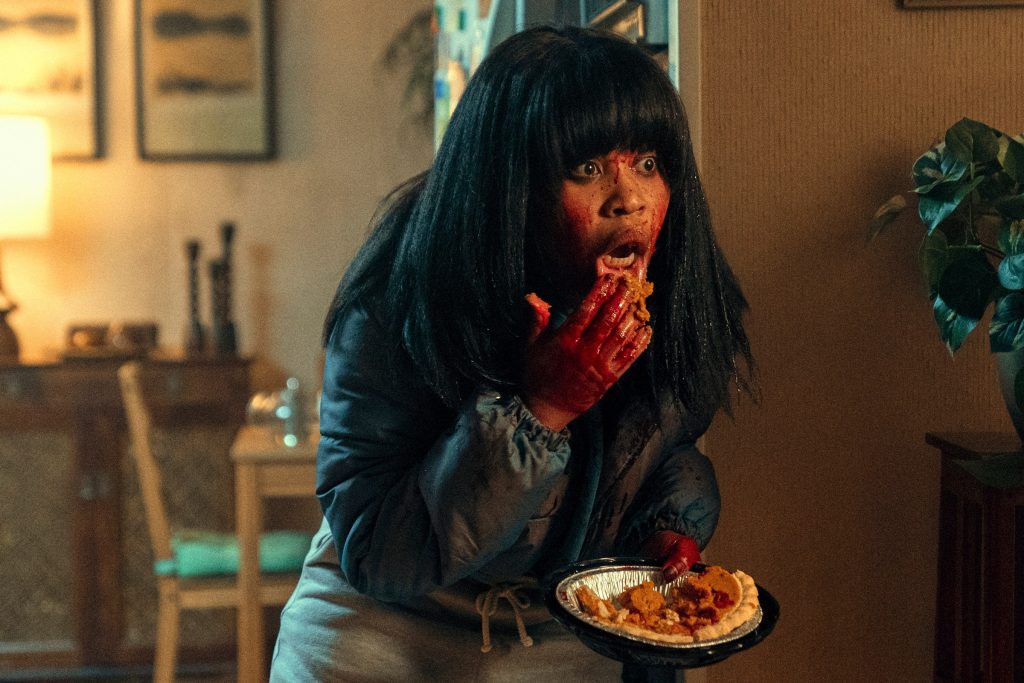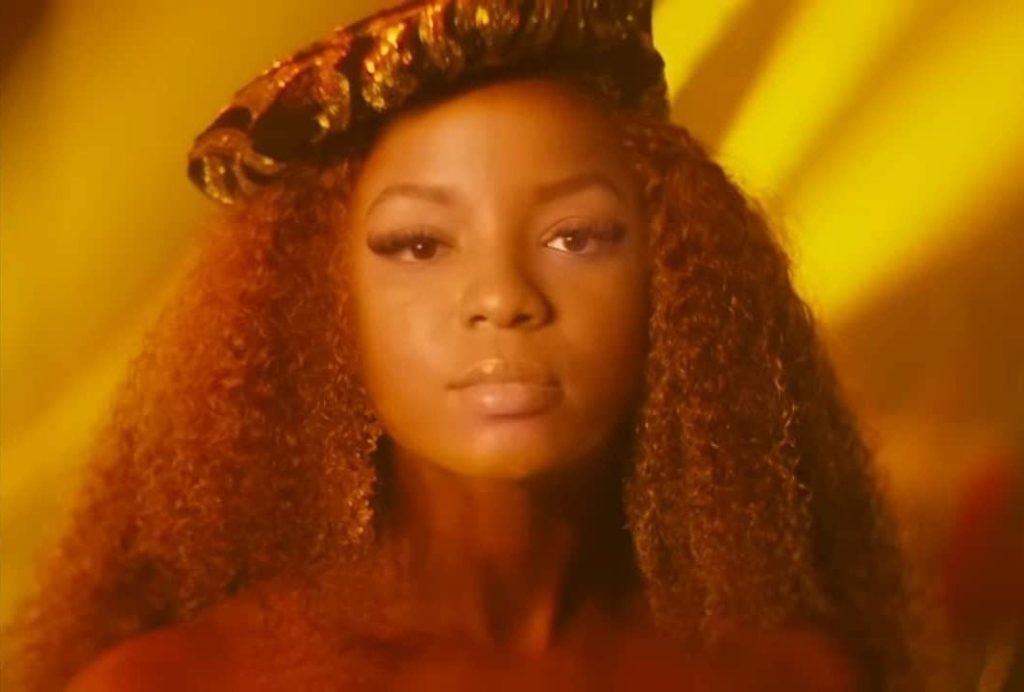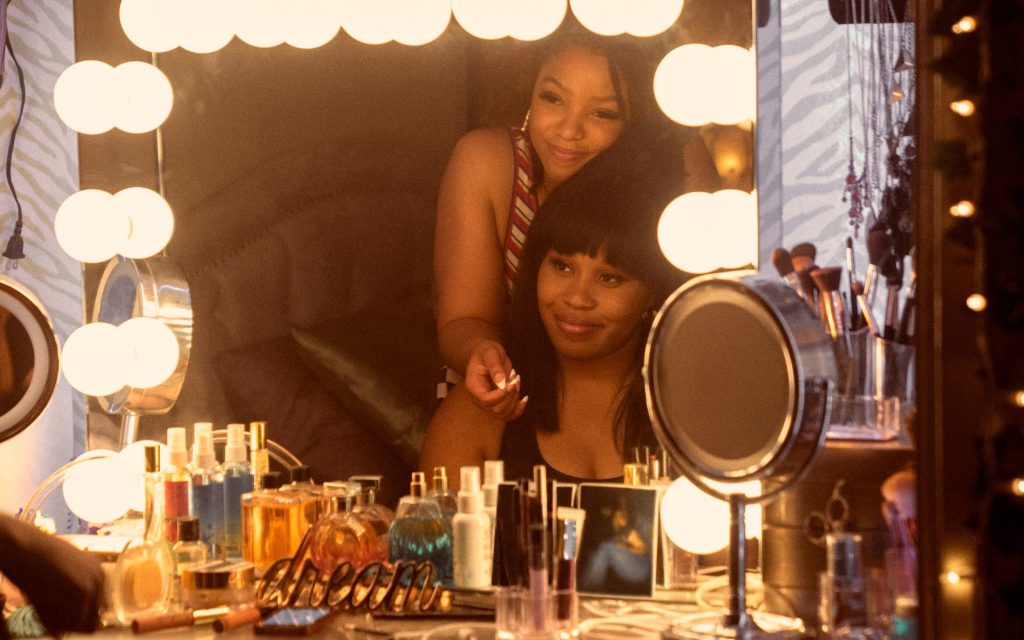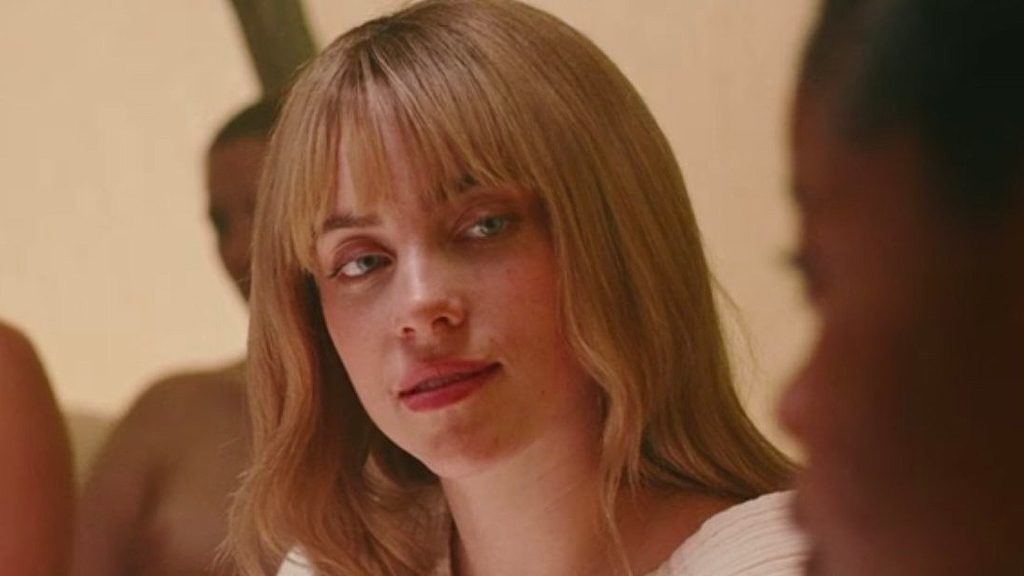Long gone are the days of simply appreciating something – now you stan it. You’re part of a family; a hive. You strive to be someone’s fave, you tweet and engage with a public figure obsessively until they notice you, you go down swinging for the figure and you promise to take down anyone who opposes that individual by any means necessary.

A subtle intensity has grown around being a fan of someone. It’s not enough anymore to just simply like something. You have to completely give yourself over to that thing in order to be seen as a legitimate fan or else you’re just another fake, wannabe, poser.
What is “Swarm”?
The twisted darkness of these parasocial relationships serves as the thematic backbone for Janine Nabers and Donald Glover’s collaborative offering “Swarm.” Tonally, “Swarm” feels like a direct descendent of Glover’s Emmy-winning FX series “Atlanta.” Completely shot on film, “Swarm” takes on the same ere of horror and surrealism that is consistent throughout “Atlanta”. Watching the events of “Swarm” play out feels voyeuristic to the viewer, comparable to being trapped in a dream that’s not necessarily bad but will haunt you long after you wake up. It’s painful, horror-inducing and grotesque at times.

The limited series focuses on Dre (Dominique Fishback) an obsessed fan of pop culture sensation Ni’jah (Nirine S. Brown). Dre’s fixation with Ni’jah leads her down a grim, winding road of loss and bloodshed.
Is It Based On True Events?
The phrase; “This is not a work of fiction. Any similarity to actual persons, living or dead, or actual events is intentional”, reads before each episode of the limited series.
Given the fact that “Swarm” is another word to describe a group of bees, and Ni’Jah is lauded as the most decorated artist in all of pop culture, AKA Beyoncé herself, the audience is left wondering however briefly, if there really was some vigilante-esque killer out there removing any QueenB naysayers. The short answer is no.

However, according to Janine Nabers, the initial idea for “Swarm” was born of a rumor that flew throughout the Beyhive community.
In an interview with Shondaland, Nabers stated: “In April of 2016, Lemonade was released. On the same night, there was a rumor about a woman named Marissa Jackson who committed suicide after watching this visual album because it basically confirmed that a very powerful man was cheating on one of the most incredibly beautiful and successful pop stars of our time. I’m from Houston, Texas, and my very best friend’s last name is Jackson. There was a lot of texting between Houstonians being like, ‘Yo, who is this Marissa Jackson? Is this a true story?’ And that existed on the internet for a while, and people were tweeting really horrible things about this woman who had killed herself and making fun of her. I remember that very specifically because Lemonade was a very significant moment in my life as a Black woman from Houston. It was a little bit of the catalyst to this show, and that’s when I researched all the crazy stories that we’ve heard online or that have existed in the real world revolving around this particular musician and how could we bring those issues to life and make them our own.”

Based on Nabers’s conversation with Shondaland, while the tragedy of Marissa Jackson may have inspired the show, it was more of a launch point for the series as a whole. There are several other instances linking the similarities between Ni’jah and Beyoncé including a recreation of that elevator video, as well as the whole biting incident. Whether or not the serial murders that are showcased in “Swarm” are based in reality is yet to be discussed, but it wouldn’t be shocking if they too were revealed to be loosely inspired by true events.
Breaking Down the Implications of Stan Culture:
“Swarm” places emphasis on the cult of the stan and this is arguably most directly portrayed in Episode 4 “Running Scared.” Dre comes across a group of millennial white women on a “wellness retreat” near the Bonnaroo Festival in Manchester, Tennessee. Led by the alluring Eva (Billie Eilish,) this literal cult acts as the first people to ever truly see Dre for who she is, and attempt to “help” her.

Appealing to her fanatic side, Eva expresses interest in Dre’s fascination with Ni’jah during their pseudo-therapy sessions and aims to get to the root of Dre’s delusion. While it all inevitably goes south, Eva’s probing intentions are the first time Dre is truly forced to acknowledge her parasocial relationship with Ni’jah.

Stan culture is a breeding ground for short-sighted online engagement, chronic online behavior and niche yet deeply meaningful interactions between individuals from opposite ends of the world. While “Swarm” is about so much more than simply stan culture and the sinister nature of parasocial relationships, it’s important to acknowledge that the only reason it exists is because of the way “fans” act online. Dre is one of those horror stories you hear about – she’s a crazed fan whose love for Ni’jah is so blind she’s ended lives over it and drove herself to the outskirts of society in spite of others not understanding her.

In fact, the only time we see Dre as a sort of level, functioning member of society is when she is going by the name of Tony and engages in a relationship with Rashida (Kiersey Clemons) in the series finale. During this time we see warmer interactions between Dre and literally everyone she interacts with. While her existence at the time is still being fueled by lies, she’s holding down a job as a store clerk, she’s completely cut off from her phone and she’s happily in love with Rashida. But, Dre is Dre so it doesn’t end well. However, the events of Episode 7 are almost more heartbreaking than the loss Dre initially faces at the beginning of the series, because you’ve seen that she can live a normal and content life completely disengaged from Ni’jah’s Swarm.

Fan culture has driven high-profile celebrities into hiding and destroyed reputations (rightfully so, but that’s neither here nor there). People dedicate their entire lives to stan culture – there are thousands of Instagram accounts, dedication pages and even entire “sides” of Twitter allotted to this obsessive behavior.
While these discourse communities can be places of asylum for millions, they also have a tendency to foster and encourage some levels of delusion. “Swarm” acts as a first-hand encounter to the power of cultish obsession.
You can submerge yourself in this subversive limited series on Amazon Prime and watch the trailer here.



